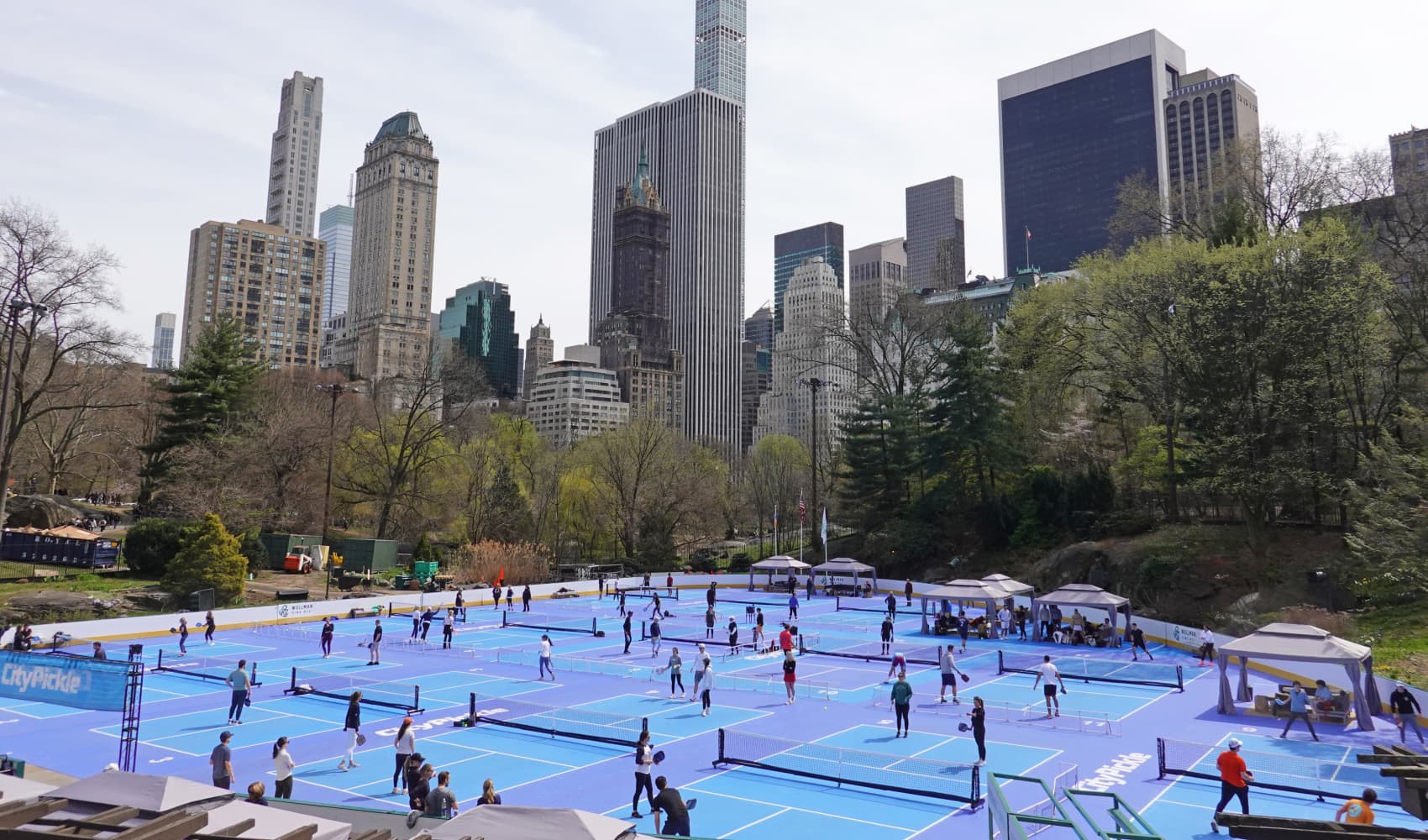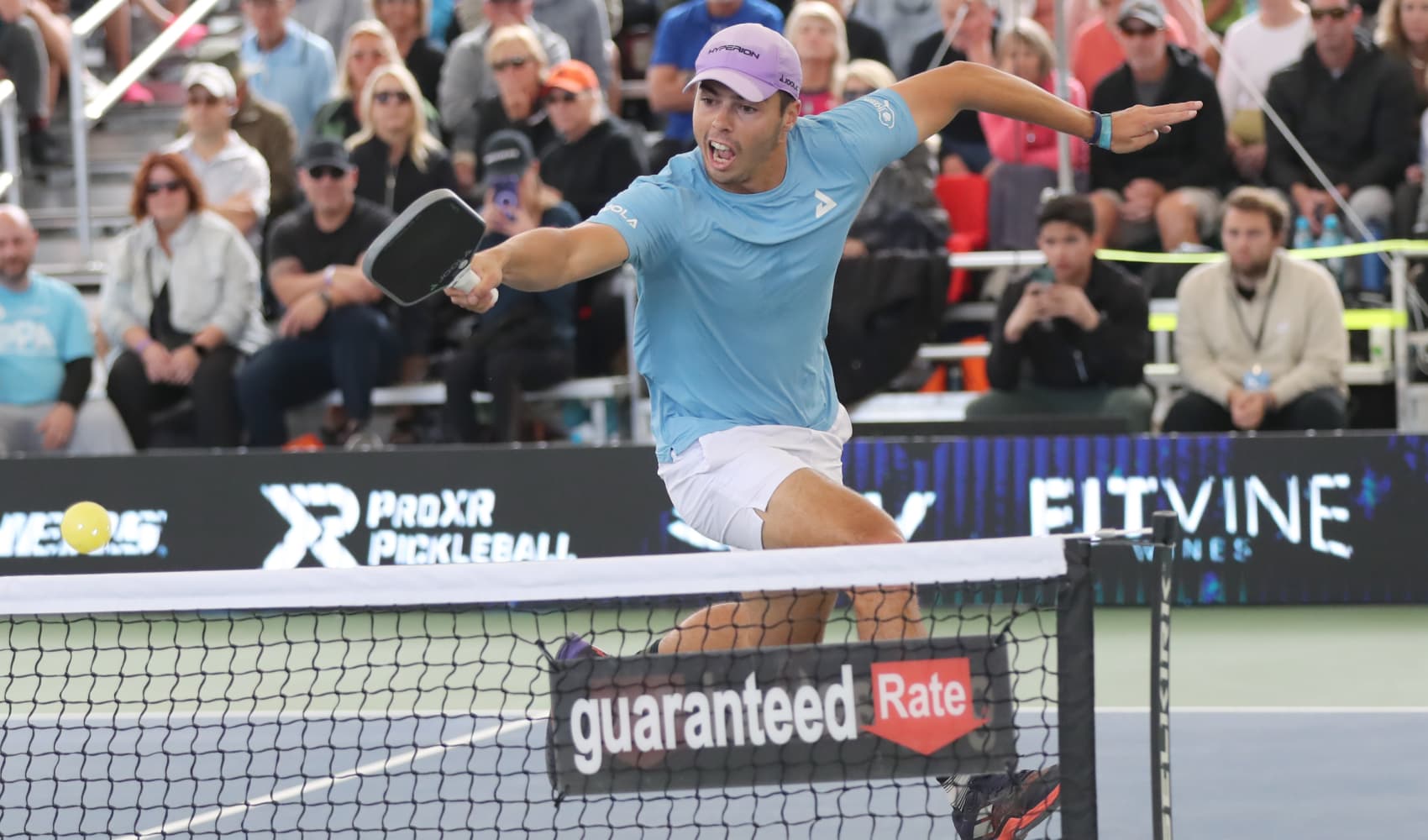Braintree installed soundproofing barriers around the town’s pickleball courts to try to reduce the nuisance for neighbors, but some say the solution wasn’t enough.
Follow NBC10 Boston on…
Instagram: instagram.com/nbc10boston
TikTok: tiktok.com/@nbc10boston
Facebook: facebook.com/NBC10Boston
X: twitter.com/NBC10Boston
Pickleball has become a popular sport in Braintree, Massachusetts, but it has also been a nuisance for some neighbors who live next to the new courts.
The town, along with the support of pickleball enthusiasts, brought in new sound barriers to help reduce the distinct noise.
WATCH ANYTIME FOR FREE
Stream NBC10 Boston news for free, 24/7, wherever you are. |
But the back and forth between pickleball players and neighbors hasn’t let up.
“It’s very diverse and brings a lot of people together,” argued Braintree Pickleball Club member Jeffrey Keyes.
Get updates on what's happening in Boston to your inbox. Sign up for our News Headlines newsletter.
“It’s very annoying,” said neighbor Tu Le.
The ball is seemingly on each other’s side of the court.
“There’s nothing we can do,” added Le.
“[The] Braintree Pickleball organization didn’t have to do a darn thing and it still would’ve been within the acceptable levels,” noted Keyes.
The town worked with the Braintree Pickleball Club, which has roughly 700 members, to bring in a $20,000 sound barrier.
“You’re talking about a 50% reduction,” said Sound Seal Industrial Sales Manager Aaron Duncan. “It’s huge if you think about it.”
Sound Seal typically manufactures panels for the construction industry and has recently found a use for them in pickleball courts.
“The higher that barrier the greater impact to the surrounding area that you have,” added Duncan.
But for Michael Megley and his neighbors who live next to the courts on Wynot Road, the barriers don’t go high enough and don’t wrap the court enough. The barrier is currently only covering one end of the eight-set courts.
“There is a slight difference in change, but it’s still not enough,” said Megley, who has become a vocal advocate against pickleball noise.
“They understand that it’s a little bit of noise, but they’re not listening to it all day seven days a week,” he said.
All of his neighbors five doors down agree.
“ 8 o’clock in the morning 9 o’clock in the morning -- we’re still sleeping!” said Le.
More on pickleball
“It’s almost overwhelming,” said another neighbor who wished not to be identified. “I can’t concentrate on meetings or conference calls. I find it difficult to focus on my work. I have to close the windows and yet I can still hear it.”
The concerns have reached the town mayor who is also partakes in pickleball.
“We’re still looking to collect some feedback on the final installation,” said Mayor Erin Joyce.
Joyce believes there are options on the table to mitigate the problem and keep the courts open.
“Our goal is to find a way which the pickleball courts can be enjoyed, but not become a nuisance for the neighbors,” she said.
“I don’t want to see any resident of Braintree… unhappy with anything, so we will continue to do whatever we need to do to coexist,” said Keyes.
“They can compromise with the hours and reduce them,” said Megley, signaling some compromise.
Failing to find a compromise could lead to a situation like in Falmouth, where a group of neighbors sued the town over pickleball noise.
“People are feeling real things and are responding with lawsuits,” said Rob Mastroianni.
Mastroianni said he used professional noise-measuring equipment to prove the case in Falmouth that constant impulsive sound is bad for people’s health.
“Impulsive sound gets your heart rate up. It gets your attention every time you hear it,” he said. “they (courts) should not be 80 feet from homes. That neighborhood is being exposed to over 100,000 pops on a good day,” he said, referring to Braintree after taking his own sound measurements.
Some neighbors on Wynot Road said they wished the town had consulted with them before bringing in the pickleball courts in the first place.
Mastroianni believes municipalities sometimes are not equipped with the proper data to make a sound decision.




